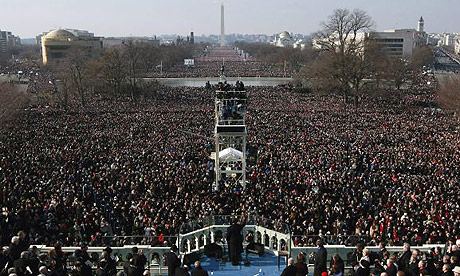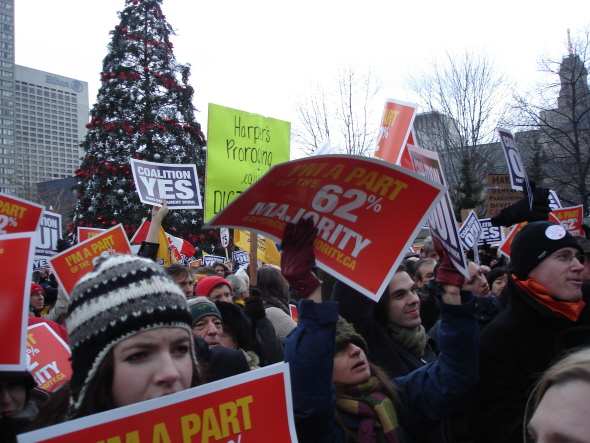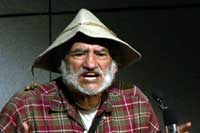national question
Kanaky (New Caledonia): Anti-capitalism and independence

Sri Lanka: Behind the genocidal war against the Tamils
By Tony Iltis
January 17, 2009 -- The January 14 announcement by the Sri Lankan government that its forces had completed the capture of the Jaffna Peninsular, effectively bringing all of the historic Tamil nation in Sri Lanka’s north-east under military occupation, was a grim reminder that the Israeli assault on the Gaza ghetto is not the only holocaust at the start of the new year.
The Tamil people have been fighting for independence from Sri Lanka since 1983 when an island-wide pogrom (the most violent of several that had regularly occurred since 1956) convinced Tamils that they would not attain equality or security under the Sinhala-chauvinist state that has ruled Sri Lanka since independence in 1948.
Sinhala is the first language of 74% of Sri Lankans. Most of the remainder are Tamil-speaking. Tamils form the majority in the north and east of the island (Tamil Eelam).
While the government has declared that the group leading the armed resistance, the Liberation Tigers of Tamil Eelam (LTTE), is finished as a military force, this is not the first time their demise has been announced. However, it has undoubtedly suffered a serious setback as a result of the sustained military offensive by the Sri Lankan army.
Black president in the White House: Not the `same old white supremacy' but …

By Mike Ely
For literally millions of people, for many of a new generation, the awakening to politics starts in these moments. This is the world, the arguments, the summations, the claims, the promises that they hear and that they will see unfold in the days ahead. We need to understand this moment, we need to also inhabit this world that they are seeing — in order to craft from among them a revolutionary force that can actually connect with and represent their highest hopes.
Indigenous-majority Greenland wins self-government

Challenges facing Québec solidaire following breakthrough in Quebec election

By Richard Fidler
December 15, 2008 -- In the December 8 Québec general election, the Liberal government headed by Jean Charest was re-elected with 66 seats, turning its minority status before the election into a thin majority of seats in the National Assembly. The sovereigntist Parti québécois (PQ), benefiting from a late surge in the polls, was elected in 51 seats and replaced the right-wing Action Démocratique du Québec (ADQ) as official parliamentary opposition. The ADQ elected only seven members.
Quebec: Breakthrough for Québec Solidaire

By Paul Kellogg
Canada: Political crisis exposes national, class divisions; left debates Liberal-NDP coalition

By Solidarity (US)
November 10, 2008 -- Millions of Americans see the election of Barack Obama as a referendum on white supremacy and today we join in their celebration. The racist campaigns launched against Obama, conducted sometimes in coded language and other times in inflammatory accusations, turned out to be amazingly unsuccessful. Yet the 2008 election also represents a dual reality that is important for socialists and activists for peace and social justice to grasp.

For tens of millions of Black Americans, seeing a United States president-elect who’s Black – and even more important, for their children to see a Black president – is a huge symbolic stride towards full citizenship and liberation. Perhaps no event since that legendary night in 1938, when Joe Louis knocked out Max Schmeling, has there been such a magic moment of celebration for the Black community; only in this case they weren’t simply spectators but participants in the victory.
Stop the war in Sri Lanka! The Tamil national question in demands a political solution!
Communist Party of India (Marxist-Leninist) Liberation central committee statement on developments in Sri Lanka.
Quebec left's challenge to socialists in the rest of Canada

Bloc Québécois supporters
By Richard Fidler
October 19, 2008 -- Once again, the Bloc Québécois has taken a majority of Quebec’s seats in Canada's House of Commons — 50 out of 75, one less than in 2006, although down by three percentage points.
In doing so, it dashed Prime Minister Stephen Harper’s hopes of a Conservative breakthrough in Quebec that would deliver him a majority government in Ottawa. Working people throughout Canada heaved a sigh of relief.
The Bloc’s support is more than a rejection of the Tories’ right-wing policies. As Bloc leader Gilles Duceppe declared on election night, October 14, it is a clear demonstration “that Quebec is a distinct nation linguistically, culturally, socially and economically”. This was the sixth consecutive federal election since 1993 in which the pro-sovereignty Bloc has won a majority of Quebec’s seats under the first-past-the-post system.
Hugo Blanco: `No contradiction between my indigenous struggle and dialectical materialism'

Interview with veteran Peruvian Marxist Hugo Blanco, conducted by Yásser Gómez for
